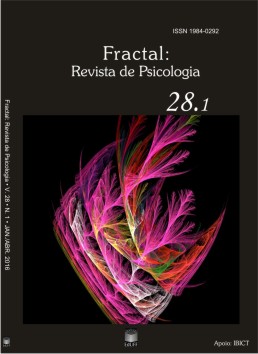Excerpts of <em>Anti-Oedipus and other reflections</em> class
Keywords:
Anti-Oedipus, clinic, Deleuze, Schizoanalysis, GuattariAbstract
This text is the first part of a class that goes through the major subjects found in the Anti-Oedipus, by Deleuze and Guattari. Deleuze takes an informal tone, and some of the interventions are emphatic. These can not always be listened, fact that doesn’t compromise the understanding of the subject. Since the beginning, by the distinction of the great interpretation types of the psychosis, the reader is introduced to the concept of three abstract lines (of very different natures); subject that is present throughout the schizoanalysis. There is a reference to Karl Jaspers, and the identification of a preceding movement in the clinic. There are literary references that set the ground for the attempt to restore the dignity of the delirium. There are negative remarks to the psychoanalysis, consequences to these former standings.Downloads
Downloads
Published
How to Cite
Issue
Section
License
Authors publishing in this journal agree to the following terms:
- Authors retain copyright and grant the journal the right of first publication, with the work simultaneously licensed under the Creative Commons Attribution License allowing sharing of the work with acknowledgement of authorship of the work and initial publication in this journal.
- Authors are permitted to enter into additional contracts separately for non-exclusive distribution of the version of the work published in this journal (e.g., publishing in an institutional repository or as a book chapter), with acknowledgment of authorship and initial publication in this journal.

This work is licensed under a Creative Commons Attribution 4.0 International License.
To the extent possible under the law, Fractal: Journal of Psychology has waived all copyright and related rights to the Reference Lists in research articles. This work is published in: Brazil.
To the extent possible under law,Fractal: Journal of Psychology has waived all copyright and related or neighboring rights to Reference lists in research articles. This work is published from: Brazil.







